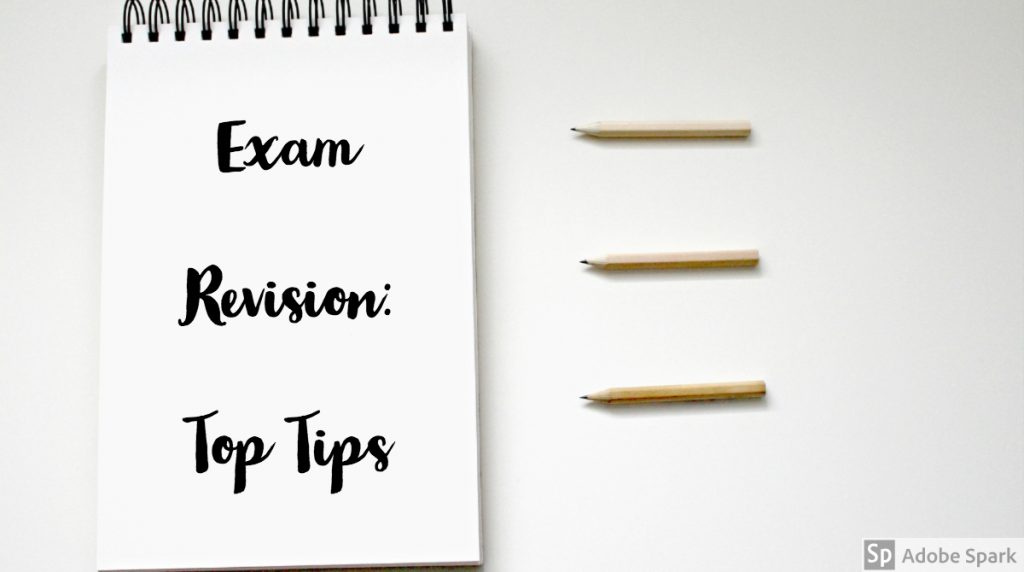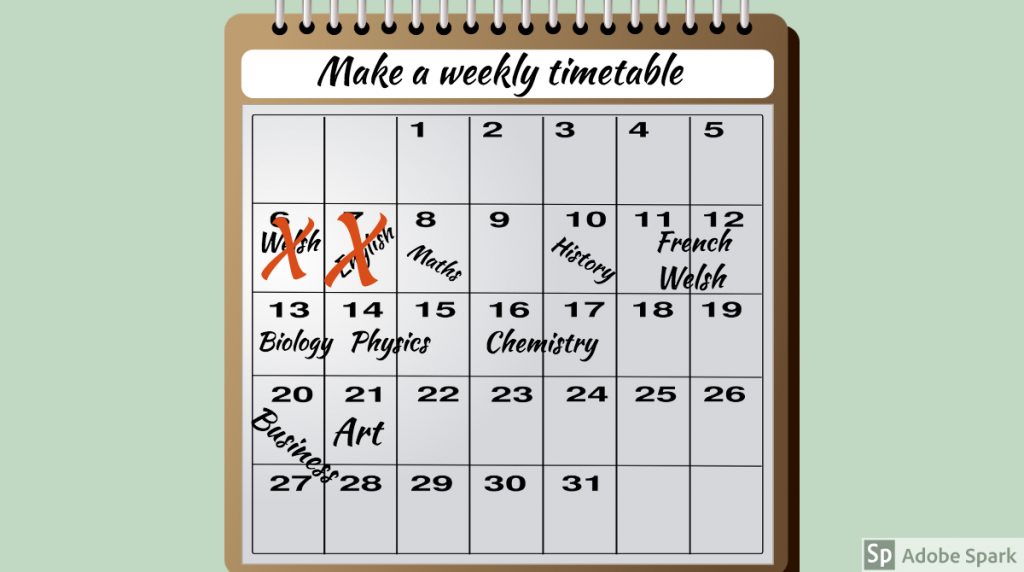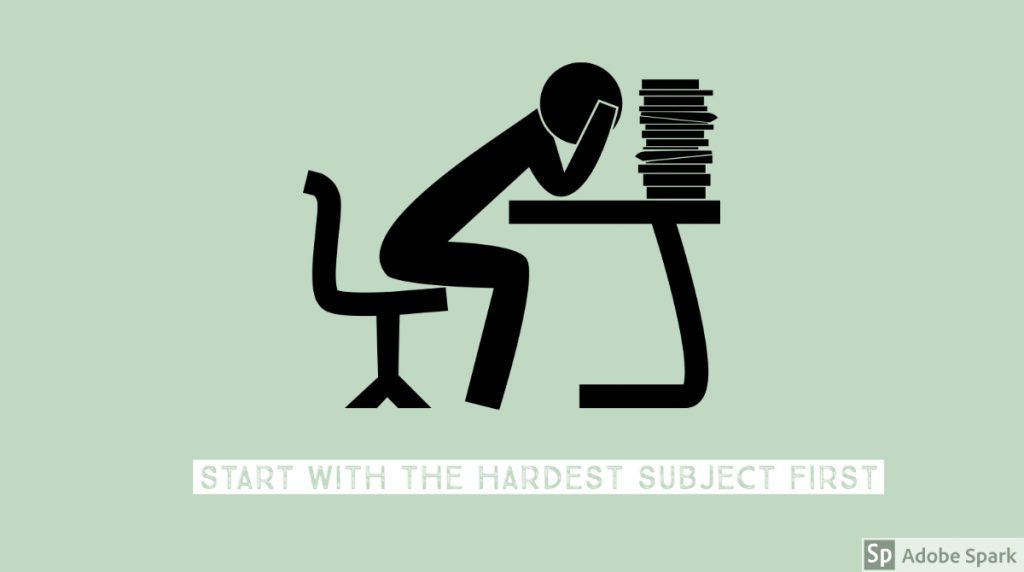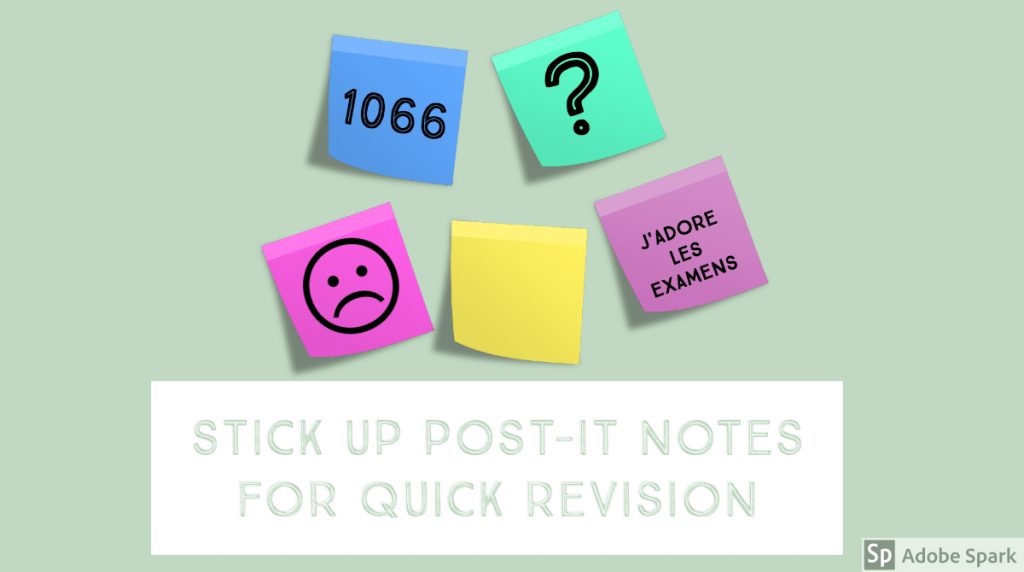Top Tips for Exam Revision

Exams are everywhere at the moment and it can be a really difficult time for some of you. Meic is here to help by publishing lots of helpful information over the next few weeks to help you prepare and cope. If you’re finding it really hard to cope then you can contact Meic on the details at the bottom of this article.
Meic has lots of blogs and tips over to help you make it through your exams – click here to see
It can be hard to get your head around revision and how to do it in the most effective way. Where do you start? How do you keep stress free? This article has 8 tips to help you plan, make the best use of you time and keep your mind and body healthy at the same time.
1. Make a weekly timetable
It’s really important to have a plan. Note down which subjects you’re going to revise each day and set yourself a time for each one. You will also need to remember to include breaks in this timetable, as well as a day off from revising. You can create a paper timetable and pin it up to your wall or you could use a free app like My Study Life.

2. Don’t procrastinate
When it’s time to study do you find yourself cleaning your room or getting lost in a YouTube loop instead? Anything other than doing the thing you’re meant to do? The hardest bit is actually starting, but once you do you’ll feel much better for it. Open that notepad or laptop; write a title, a header, anything!
The dread of being under-prepared the day before an exam is always worse that the dread of biting the bullet and getting started. Keep track of your time and make sure you don’t spend too much time procrastinating on your phone by downloading the Offtime app which lets you block distracting apps and filter calls, tells you how much time you’re spending on your phone and on specific apps and helps you to give yourself a digital detox.
3. Tackle the hardest subjects first
If you’re struggling more with one subject over another, and preparing for both exams, then it makes sense to start revising the subject you know least about. It will give you more time to understand it. It will also make things a bit easier when thinking about what you have left to do, it won’t feel so daunting if you know that you understand the next subject better.
4. Ask for help
Your friends and family can be a really useful study tool if they’re willing to help. Try explaining your notes, concepts and ideas out loud to someone who has little or no knowledge of the subject. Explaining it to them will help you to understand them better yourself, and some things stick better if you’ve said them out loud.
Get them to test you. Write a list of questions and answers and give them to someone. Get them to quiz you. This is a good way of memorising dates and quotes. If you can’t find a willing victim to quiz you then download the Topgrade Quiz Maker on Android or itunes to create your own quizzes to test yourself. No more excuses!
5. All revision counts
Sometimes you just don’t have the time to sit down and plan an essay or fill in a past paper. Don’t worry about it. Even if you don’t have time to spend time revising, you can still do something. Stick a load of post-it notes on your wall with key dates and themes and you can have a quick look at these when you don’t have enough time to revise.
6. Take care of your mental health
While exams are important and you want to do well, your mental and emotional health is far more important. Don’t put too much pressure on yourself. Exams can always be re-sat so it’s not the end of the world if things don’t quite go to plan.

7. Take a break
Taking a break is just as important as the revision. If you study for too long you can become lethargic and unable to focus, you won’t take anything in when you’re like this! Take a regular break every 90 minutes or so. Don’t use this to procrastinate, nap or snack on junk food though. You need to do something that will refresh your body and mind. Stretch, go for a walk, snack on healthy food or tidy up your workspace. You could try meditating, take a shower or listen to music. Set a timer for about 15 minutes and when the alarm sounds, go back to your revision feeling refreshed and focused. Check out the How to Take a Break from Studying WikiHow for ideas of things you should and shouldn’t do.

8. Call Meic
If you feel you just can’t cope or want further advice or information then call the Meic helpline to talk to one of our friendly advisors.
Meic is an information and advocacy helpline for children and young people aged 0-25 in Wales. We are open 8am to midnight, 7 days a week. You can contact us free on the phone (080 880 23456), WhatsApp message (080 880 23456), text message (07943 114 449) or online chat.
























